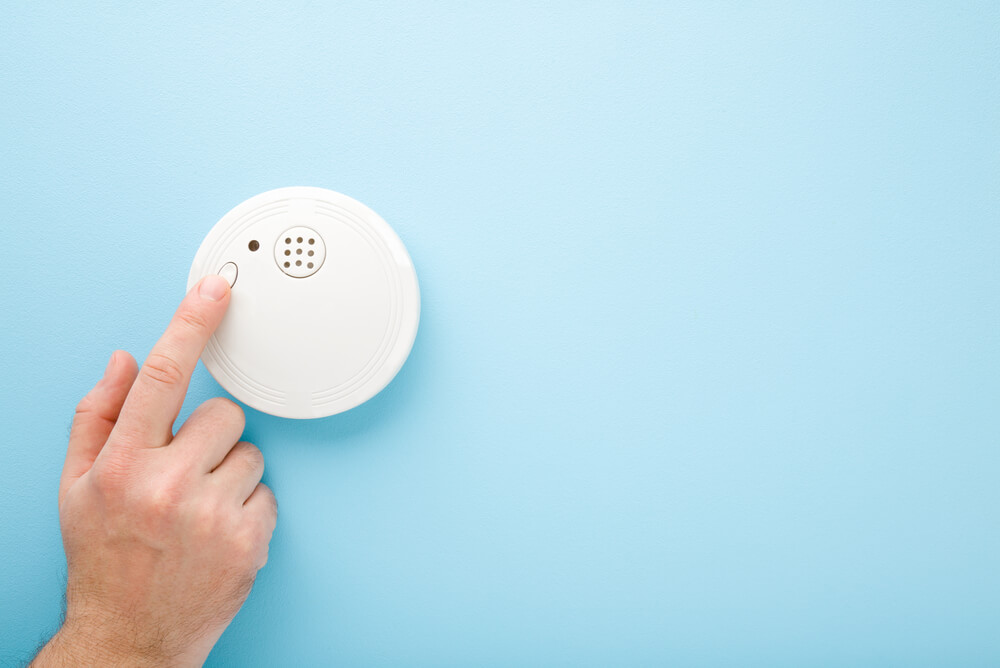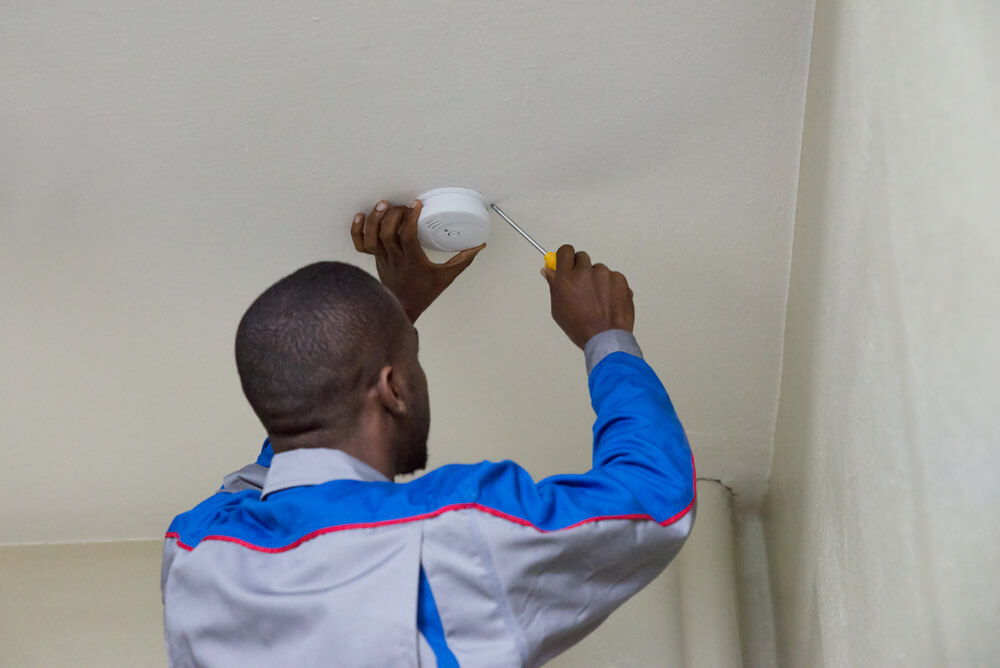
Landlords in Queensland have just a few weeks left to install new smoke alarms ahead of new safety rules coming into effect on 1 January 2022. Those who fail to comply will not be able to rent out their property.
The legislation was introduced to improve safety following the tragic Slacks Creek house fire that claimed 11 lives in 2011.
Smoke alarms must now be interconnected – meaning that when one alarm goes off, all alarms in the house go off simultaneously – and they must be photoelectric. The requirements also state that:
- There must be a smoke alarm in every bedroom
- There must be a smoke alarm in hallways that connect bedrooms
- There must be a smoke alarm on each level of the home
- If there are no bedrooms, the smoke alarm must be along the most likely path of escape1
All residential rental properties must comply with the new laws and have interconnected photoelectric smoke alarms by 1 January 2022.
Owner-occupiers have until January 2027, to install interconnected photoelectric smoke alarms under the new legislated requirements.2
The smoke alarms must have the following label: AS 3786-2014, which refers to the specific Australian Standard that governs these lifesaving devices.3 Any current alarm older than 10 years must be replaced with the new interconnected photoelectric smoke alarms, even if this is before the January 2022 or January 2027 deadline (depending on whether the resident is a tenant or owns the home).4
These AS 3786-2014 interconnected photoelectric smoke alarms can either be powered by a non-removable 10-year battery (meaning you will need to replace these every 10 years or if they develop a fault within those 10 years) or by being hardwired into the home’s electrical wires.5
The smoke alarms talk to each other wirelessly or with wires connecting them throughout the building.
Landlords must ensure their smoke alarms are up to date with the new legal requirements by January 2022.6 This same deadline also applies to those selling their homes.7

Can homeowners install these smoke alarms themselves?
Queensland homeowners can install their new smoke alarms themselves with some simple tools, provided that they are installing a wireless battery-powered smoke alarm. Any hardwired alarms will need to be installed by a licensed electrician.8
These new interconnected smoke alarms are not allowed to be placed within:
- 300mm of room corners
- 300mm of light fittings
- 400mm of air-con vents
- 400mm of ceiling fan blades9
This ensures the smoke alarm is placed in an effective area as corners and other fittings like lights and fans could interfere with how well the alarm operates. Corners can also create ‘dead air space’, which traps smoke away from the alarm. There are special rules for stairways, sloping ceilings and houses with rafters or exposed beams.10
What about asbestos?
If the ceiling contains asbestos, it’s recommended to engage a professional if you have any concerns about asbestos. The Queensland Government provides guidance on how to safely drill into asbestos.
The insurance implications for not being compliant
Compare the Market’s General Manager of General Insurance, Stephen Zeller, notes that updating smoke alarms ensure homeowners don’t void their home and contents insurance if a fire breaks out.
“Not only will it help keep you safe, but it will also have an impact on your home and contents insurance if you needed to claim. While policies don’t explicitly exclude fire damage claims, they do state that you must follow the law” Zeller explains.
“Failing to update your smoke alarms by the deadline could be seen as non-compliance with the law, and this could potentially see some fire-related claims being rejected.”
Sources:
1 Buying and installing smoke alarms. Queensland Government. 2020.
2 Smoke alarms. Queensland Fire and Emergency Services. Queensland Government. 2021.
3 Photoelectric Smoke Alarms. Queensland Fire and Emergency Services, Queensland Government. 2017.
4 For existing dwellings. Queensland Fire and Emergency Services, Queensland Government. 2021.
5 Smoke alarm installation. Queensland Fire and Emergency Services, Queensland Government. 2021.
6 Landlords. Queensland Fire and Emergency Services, Queensland Government. 2020.
7 For dwellings being sold, leased or an existing lease renewed. Queensland Fire and Emergency Services, Queensland Government. 2021.
8 For existing dwellings. Queensland Fire and Emergency Services, Queensland Government. 2021.
9 Smoke Alarm Legislation. Queensland Fire and Emergency Services, Queensland Government. 2020.
10 Smoke alarm installation. Queensland Fire and Emergency Services, Queensland Government. 20020.







